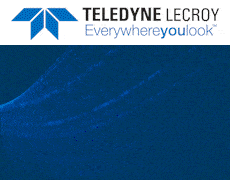Technology From Excelero Helps AI, ML and Database Storage
With combination of NVMesh's distributed erasure coding technology enhanced with Intel Optane P5800X SSDs
This is a Press Release edited by StorageNewsletter.com on December 21, 2020 at 2:19 pm![]() By Kirill Shoikhet, CTO, Excelero Storage Ltd.
By Kirill Shoikhet, CTO, Excelero Storage Ltd.
Data center technology, whether for public clouds, private clouds or enterprise data centers, has just taken a tremendous step forward with significant impact for AI, ML and database storage thanks to new technology in Excelero Storage Ltd.‘s NVMesh software.
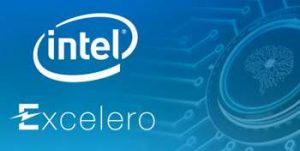
With the debut of Intel Corp.‘s new P5800X SSD, the 2nd Gen Optane SSD, IT teams have a new option for maximizing scale-out storage performance, scalability and for optimizing price-performance. Excelero participates in this new technology launch as the only SDS provider working with Intel to showcase ‘knock-your-socks-off’ performance.
Optane SSD P5800x
For the past year, Excelero has been working with Intel on using 2nd Gen Optane technology to make our NVMesh solution deliver more for demanding applications such as AI, HPC, databases and data analytics. With double the density and an upgraded PCIe gen 4.0 interface, the P5800X delivers at least a 2.5x performance boost for storage bandwidth, throughput and stable low latency even in the most demanding scenarios.
When combined with Excelero NVMesh‘s scalable distributed erasure coding (EC) for data protection, data centers can obtain high throughput and low latency with even a minimal configuration, as shown in this demo (LINK). As tested, it delivers the performance of proprietary AFAs at a fraction of the cost, in a server using 2 Optane P5800Xs and 6 QLC drives, specifically here Intel QLC P4326 drives, providing 60TB of usable protected storage space.
NVMesh’s performance scales linearly with cluster size and its distributed EC provides dual-protection from drive and node failures. Imagine the performance and especially the performance density that can be achieved with such building blocks at data center-scale.
Click to enlarge
Assuring high-performance storage for demanding applications has usually required proprietary storage systems with significant complexity and cost. Such closed systems cannot keep up with the pace of storage growth and the need to support newer and better technologies without forklift upgrades. For AI, HPC, data analytics and database workloads, the combination of P5800X SSDs and NVMesh software means the price tag required for the storage to feed hungry applications will become far less of an issue.
For customers, combining the NVMesh and P5800X SSDs means:
-
Thay can benefit from Excelero’s high performance distributed erasure coding technology with any NVMe drive efficiently, including QLC drives.
-
Their demanding applications can get better write performance with the NVMesh distributed erasure coding data protection in addition to the strong read performance and space efficiency they are used to and value.
-
Customers can handle mixed read-write workloads, from small files to large streams, with high efficiency and without interference between them.
For years, data center architects have wanted to have it all with their demanding applications, to replace TLC SSDs with cost efficient and capacity optimized QLC drives, while obtaining performance, reducing TCO, optimizing system longevity and maintaining NVMe elasticity.
With the combination of NVMesh’s distributed erasure coding technology enhanced with P5800X drives, they can.
Ressources:
Use Cases
Video: A Breakthrough Technology Helps AI, ML and Database Storage by Yaniv Romem, CEO, Excelero








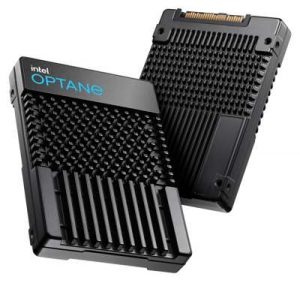
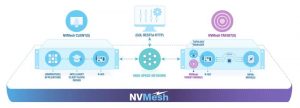
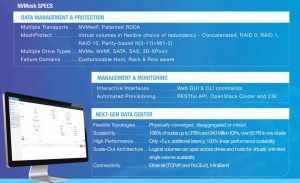






 Subscribe to our free daily newsletter
Subscribe to our free daily newsletter


